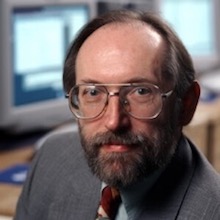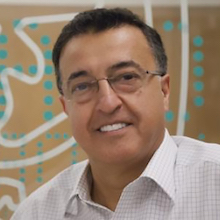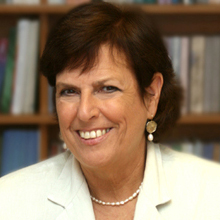KEYNOTE SPEAKERS:

|
Professor Witold Pedrycz, IEEE Fellow,
website: www.ece.ualberta.ca/~pedrycz/ |
SPEECH TITLE: "Granular Artificial Intelligence: A New Avenue of Artificial Intelligence for Modeling Environment"
SUMMARY:
Recent advancements in Artificial Intelligence fall under the umbrella of industrial facets of AI (Industrial AI, for short) and explainable AI (XAI). We advocate that in the realization of these two pursuits, information granules and Granular Computing play a significant role. First, it is shown that information granularity is of paramount relevance in building linkages between real-world data and symbols commonly encountered in AI processing. Second, we stress that a suitable level of abstraction (information granularity) becomes essential to support user-oriented framework of design and functioning AI artifacts. In both cases, central to all pursuits is a process of formation of information granules and their prudent characterization. We discuss a comprehensive approach to the development of information granules by means of the principle of justifiable granularity; here various construction scenarios are discussed. In the sequel, we look at the generative and discriminative aspects of information granules supporting their further usage in the formation of granular models. A symbolic manifestation of information granules is put forward and analyzed from the perspective of semantically sound descriptors of data and relationships among data.
ABOUT THE SPEAKER:
Prof. Witold Pedrycz is a Professor and Canada Research Chair (CRC) in Computational Intelligence in the Department of Electrical and Computer Engineering, University of Alberta, Edmonton, Canada. He is also with the Systems Research Institute of the Polish Academy of Sciences, Warsaw, Poland. He also holds an appointment of special professorship in the School of Computer Science, University of Nottingham, UK. In 2009 Dr. Pedrycz was elected a foreign member of the Polish Academy of Sciences. In 2012 he was elected a Fellow of the Royal Society of Canada. Witold Pedrycz has been a member of numerous program committees of IEEE conferences in the area of fuzzy sets and neurocomputing. In 2007 he received a prestigious Norbert Wiener award from the IEEE Systems, Man, and Cybernetics Council. He is a recipient of the IEEE Canada Computer Engineering Medal 2008. In 2009 he has received a Cajastur Prize for Soft Computing from the European Centre for Soft Computing for “pioneering and multifaceted contributions to Granular Computing”. In 2013 has was awarded a Killam Prize. In the same year he received a Fuzzy Pioneer Award 2013 from the IEEE Computational Intelligence Society. His main research directions involve Computational Intelligence, fuzzy modeling and Granular Computing, knowledge discovery and data mining, fuzzy control, pattern recognition, knowledge-based neural networks, relational computing, and Software Engineering. He has published numerous papers in this area. He is also an author of 15 research monographs covering various aspects of Computational Intelligence, data mining, and Software Engineering. Dr. Pedrycz is intensively involved in editorial activities. He is an Editor-in-Chief of Information Sciences and Editor-in-Chief of WIREs Data Mining and Knowledge Discovery (Wiley). He currently serves as an Associate Editor of IEEE Transactions on Fuzzy Systems and is a member of a number of editorial boards of other international journals.

|
Professor Morteza Gharib Hans W. Liepmann Professor of Aeronautics and Bioinspired Engineering,
website: www.bbe.caltech.edu/people/morteza-gharib |
SPEECH TITLE: "Advanced Wireless Healthcare and Monitoring Systems"
SUMMARY:
With advances in wireless devices there is a new horizon for the use of these tools for diagnostics, monitoring and follow-up in medical settings or at home. These applications can evaluate many conditions with simplicity and accuracy, including the efficacy and deficiency of drugs and the myriad of metrics emergency rooms need for effective patient triage. When applied with the criteria of meeting the most serious need for the most people, two major areas emerge as primary candidates of focus: cardiovascular diseases and diseases of the human eye. In this lecture, I address some of the benefits of non-invasive wireless modalities where important indices for the cardiovascular and ocular systems can be measured or inferred with good fidelity. The small scale, portable nature of these devices in combination with their ease-of-use puts them at the fore of accessible new devices that can be deployed with significant effect to large numbers of patients at a very low cost.
ABOUT THE SPEAKER:
Professor Gharib received his B.S. degree in Mechanical Engineering from Tehran University (1975) and his M.S. 1978, in Aerospace and Mechanical Engineering from Syracuse University and his Ph.D.1983, in Aeronautics from Caltech. He joined the faculty of the Applied Mechanics and Engineering Sciences Department at UCSD in 1985. In 1993, he joined Caltech as a professor of Aeronautics. Currently, he is director of Graduate Aerospace Laboratory (GALCIT).
Professor Gharib’s current research interests in conventional fluid dynamics and aeronautics include: Vortex dynamics, active and passive flow control, nano/micro fluid dynamics, autonomous flight and underwater systems, as well as advanced flow-imaging diagnostics. His bio-mechanics and medical engineering research activities can be categorized in two areas:
- fluid dynamics of physiological machines such as the human cardiovascular system and ophthalmology as well as aquatic-breathing/propulsion
- development of medical devices such as heart valves, cardiovascular and human eye health monitoring and drug delivery systems.

|
Professor Hagit Messer
IEEE Life Fellow,
website: english.tau.ac.il/profile/messer |
SPEECH TITLE: "From Communication Wireless Networks to the Garden Hose: Advances in Opportunistic Weather Monitoring"
SUMMARY:
Wireless communication channels are susceptible to weather conditions. In 2006 we were first to suggest to extract weather information from existing measurements of signals level in cellular backhaul wireless networks. Due to the wide spread of cellular networks, this technology has been used mainly to create near ground rainfall maps, which have been shown by many groups around the world to be accurate and reliable. In this talk I will review the challenges and opportunities in using this approach with the emerging 5G communication technologies, and, in particular, with mmWave wireless communication. Beside dealing with the technical challenges of using communication links as opportunistic weather sensors, I will present a theoretical analysis of the potential benefit of this approach, in terms of the achievable spatial resolution and the accuracy it can provide.
ABOUT THE SPEAKER:
Hagit Messer, a Life Fellow of the IEEE, is a professor of Electrical Engineering at Tel Aviv University (TAU), and the Kranzberg Chair in Signal Processing, and a co-founder of ClimaCell.
She has joined TAU on 1986, after Post-Dec at Yale University. On 2000-3 she has served as the Chief Scientist at the Ministry of Science, Israel. After returning to TAU she was the head of the Porter school of environmental studies (2004-6), and the Vice President for Research and Development (2006-8). On October 2008 she has started a 5 years term as the President of the Open University in Israel. She has returned to TAU on October 2013, serving also as the Vice-Chair of the council for Higher Education (CHE), Israel till January 2016.

|
Professor Rafik Aliyev
Joint MBA Program, Georgia State University, USA,
website: mba.edu.az/education/mba/Detail/43 |
SPEECH TITLE: "Extension of Fuzzy Set: Z-sets"
SUMMARY:
The fuzzy set theory was proposed by Zadeh as a formalism to handle uncertainty of information described by linguistic evaluations. The theory allows to solve problems of control, planning, decision making under imprecise, vague and partially true information in various fields. Further developments of this theory lead to extensions of a classical fuzzy set developed to account for a higher order uncertainty of vague linguistic information. These extensions include type-2 fuzzy sets, intuitionistic fuzzy sets, hesitant fuzzy sets etc. The classic fuzzy set and its extensions allow to cope with more complex practical problems. But they do not take well into consideration the reliability of information that is provided. Indeed, the extent to which one can rely on solution of any problem is up to the reliability level of decision-relevant information. As a formal basis of dealing with imprecision and partial reliability of information, Zadeh proposed the concept of a Z-number. The concept is based on the use of probability measure to evaluate reliability of fuzzy set-based description of values of interest. In turn, a Z-number is a special case of a Z-set suggested in this talk. The latter is a general case when random variable X is not necessarily defined in the real line R. The concept of a Z-set would enhance neoclassical analysis to reflect imprecision, randomness and uncertainty in computation and reasoning. This concept is related to fuzzy set theory, set-valued analysis and its extensions.
This study for the first time presents the extensions of fuzzy sets to Z-sets and core of Z-calculus based on Z-sets. It is introduced definitions and properties of Z-sets and Z-functions, Z-derivatives, Z-integrals, and some concepts of Z-algebra are studied. Application of Z-sets to Z-matrix equation and Z-differential equations is considered. Development of Z-sets and Z-calculus is important for construction of models which are closer to real-world problems (in economics, engineering, medicine and other fields) than those based on classical, probabilistic or conventional fuzzy sets.
ABOUT THE SPEAKER:
Rafik A. Aliev received the Ph.D. and Doctorate degrees from the Institute of Control Sciences, Moscow, Russia, in 1967 and 1975, respectively. His major fields of research are decision theory with imperfect information, arithmetic of Z-numbers, fuzzy logic, soft computing and control theory. He is a Professor and the Director of the Department of the joint MBA Program between the Georgia State University (Atlanta, GA, USA) and the Azerbaijan State Oil and Industry University (Baku, Azerbaijan), and a visiting professor with the University of Siegen, (Siegen, Germany) and with Near East University, (Nicosia, North Cyprus). He is also a professor in Georgia State University (Atlanta, GA).
Dr. Aliev is a regular Chairman of the International Conferences on Applications of Fuzzy Systems and Soft Computing, International Conferences on Soft Computing and Computing with Words, and World Conferences on Intelligent Systems for Industrial Automation. He is an Editor of the Journal of Advanced Computational Intelligence and Intelligent Informatics (Japan), an Associate Editor of the Information Sciences journal, a member of the Advisory board of the International Journal of Information Technology and Decision Making, member of Editorial Boards of International Journal of Web-based Communities (The Netherlands), Iranian Journal of Fuzzy Systems (Iran), International Journal of Advances in Fuzzy Mathematics (Italy), and International Journal “Intelligent Automation and Soft Computing.” He was awarded USSR State Prize in field of Science (1983), Lifetime Achievement Award in Science (2014), and International Fuzzy Systems Association fuzzy fellow award (2015).
